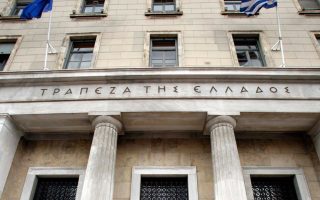Greek tourism revenue rebounding, risks remain, SETE chief says

Greek tourism revenues may rise by up to 9 percent this year, helping Greece return to strong economic growth, but political issues could cloud that forecast, the head of Greek tourism body SETE told Reuters Tuesday.
Andreas Andreadis said 2017 tourism revenues could rise up to 14.5 billion euros – after a 6.4 percent drop to 13.2 billion euros in 2016. Tourist arrivals were seen increasing to 27 million visitors from 25 million last year.
With a long coastline and dotted with islands, Greece relies on its sandy beaches and ancient temples for an economic recovery.
Tourism accounts for about 18 percent of its gross domestic product and employs a fifth of its work force.
The country aims at 2.7 percent growth in 2017 and hopes to return to bond markets this year, after seven years in bailouts that plunged it into deep recession.
But the projections hinge on Greece concluding a review soon of its bailout progress with its international lenders, avoiding a flare-up in relations with neighboring Turkey and handling the migrant crisis efficiently.
“We could see a rebound to 14.2-14.5 billion euros, which translates to a 9 percent increase year-on-year,” Andreadis told Reuters. “But these estimates come with conditions.”
He added he expected a drop in cruise arrivals this year – from 2.5 million last year – due to the political instability in the region and mainly Turkey, which holds a constitutional referendum in April.
Relations between Greece and Turkey, neighbors and NATO allies, have been strained since a Greek court refused to extradite eight Turkish soldiers seeking asylum in the country after a failed coup attempt against Recep Tayyip Erdogan in July.
Both countries, which remain at odds over territorial disputes and ethnically split Cyprus, play an important role in managing Europe’s migration crisis.
“The situation in Turkey is currently unpredictable… After April, tension will defuse evidently,” he said, adding that it was in Greece’s interest to “keep its cool.”
Problems managing the migrant crisis last year took a toll on bookings for Greece, a gateway for migrants to Europe, and forced businesses to slash prices, which in turn led to reduced revenues despite a peak in arrivals, Andreadis said.
SETE expected a 2 million rise in arrivals this year because “the image of Egypt and Turkey has not recovered [and] Greece is a safe destination while Spain increased prices,” he said, referring to a main competitor for sun-seeking tourists. “In this environment, Greece offers best value for money.”
Initial data point to increased demand from Russia. Pre-bookings from Germany and Britain, Greece’s main tourist markets, are also up year-on-year despite Britain’s decision to leave the EU, said Andreadis, who will present SETE’s outlook in detail in Berlin next week.
Greece signed up to its first bailout with the European Union and the International Monetary Fund in 2010. Its third bailout expires in 2018, and the IMF has yet to decide if it will participate in the country’s current rescue package. A rift between the EU and the IMF over Greece’s progress has clouded its latest bailout review, which has dragged on for months, reviving fears of a new Greek crisis. The lenders’ mission chiefs returned to Athens Tuesday to resume talks.
“It was a first step but we don’t have a deal yet,” said Andreadis. “This is a significant risk, which could affect demand and arrivals, if there is no happy end.” [Reuters]





